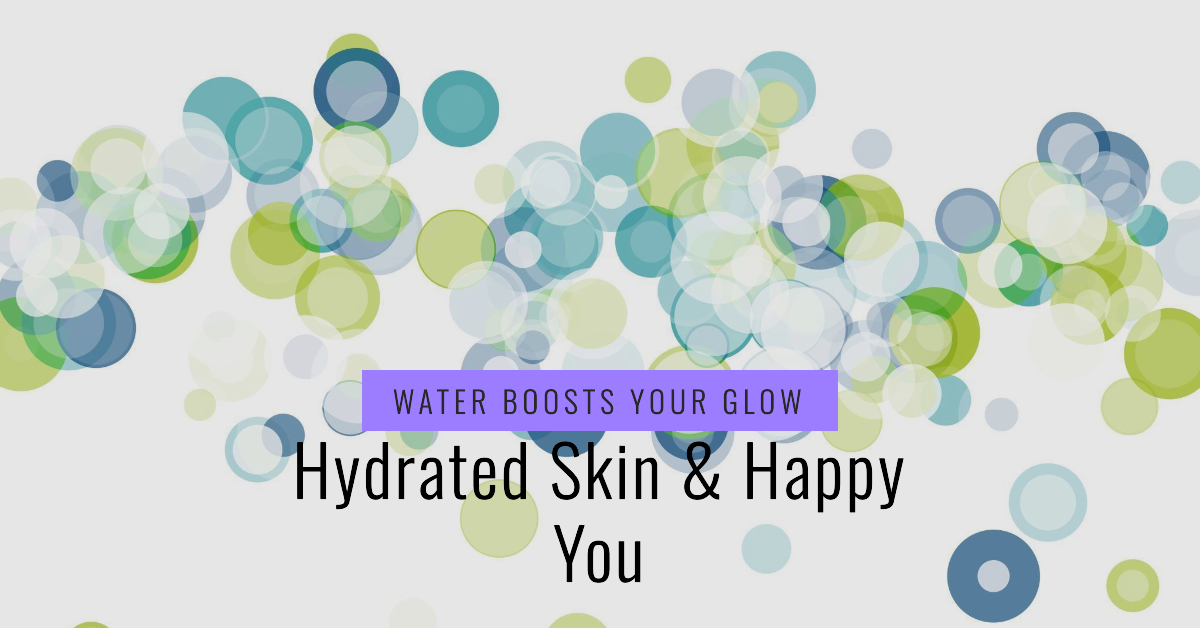In the quest for radiant skin and optimal health, we frequently underestimate one of the simplest yet vital elements: hydration. Our bodies, predominantly composed of water, rely on adequate hydration for fundamental physiological functions. Beyond merely satisfying thirst, proper hydration plays a pivotal role in maintaining hydrated skin and overall well-being. In this thorough guide, we explore the significance of hydration, its direct link to skin health, and effective strategies for maintaining optimal hydration levels for glowing, hydrated skin and overall wellness.
In This Article
- 1 Understanding Hydration:
- 1.1 The Significance of Hydration for Skin Health:
- 1.2 Hydration and Overall Health:
- 1.3 Science-Based Health Benefits of Drinking Enough Water:
- 1.3.1 1. Enhanced Cognitive Function:
- 1.3.2 2. Improved Physical Performance:
- 1.3.3 3. Facilitated Nutrient Absorption:
- 1.3.4 4. Regulated Body Temperature:
- 1.3.5 5. Optimized Digestive Function:
- 1.3.6 6. Detoxification and Waste Elimination:
- 1.3.7 7. Joint Lubrication and Cushioning:
- 1.3.8 8. Supports Cardiovascular Function:
- 1.4 Practical Strategies for Optimal Hydration:
- 1.5 Key Takeaway:
- 1.6 Share with your friends:
- 1.7 Like this:
- 1.8 Related
Understanding Hydration:
Hydration, in its essence, refers to the body’s ability to maintain an optimal balance of water and electrolytes. Water constitutes a significant portion of our body weight and is vital for various bodily functions, including nutrient transportation, temperature regulation, and waste elimination. When adequately hydrated, our skin appears supple, radiant, and youthful. Conversely, dehydration manifests through dryness, dullness, and accelerated aging of the skin.
The Significance of Hydration for Skin Health:
- Maintaining Moisture Balance: The skin acts as a protective barrier against external aggressors, safeguarding internal tissues and organs. Adequate hydration ensures the integrity of this barrier, preventing moisture loss and maintaining optimal hydration levels within the skin cells.
- Enhanced Elasticity: Proper hydration promotes the production of collagen and elastin, essential proteins responsible for skin elasticity. By preserving skin suppleness, hydration minimizes the formation of fine lines, wrinkles, and sagging, resulting in a more youthful complexion.
- Radiant Complexion: Well-hydrated skin possesses a natural glow, reflecting light evenly across its surface. Hydration plumps up skin cells, smoothing out imperfections and creating a luminous complexion that exudes health and vitality.
Hydration and Overall Health:
Beyond its cosmetic benefits, hydration plays a pivotal role in maintaining overall health and well-being. Proper hydration is linked to improved cognitive function, enhanced physical performance, and efficient detoxification processes within the body. By supporting vital organs and systems, hydration fosters optimal functioning, thereby promoting longevity and vitality.
Science-Based Health Benefits of Drinking Enough Water:
1. Enhanced Cognitive Function:
Adequate hydration is crucial for optimal brain function. Research suggests that even mild dehydration can impair cognitive performance, including attention, memory, and mood regulation. By maintaining proper hydration levels, individuals can support mental clarity, focus, and overall cognitive function.
2. Improved Physical Performance:
Hydration plays a pivotal role in athletic performance and exercise endurance. During physical activity, the body loses water through sweat, leading to dehydration if not replenished adequately. Studies demonstrate that even modest levels of dehydration can impair exercise performance, reduce stamina, and increase perceived exertion. By staying hydrated, athletes can optimize their performance, delay fatigue, and facilitate recovery post-exercise.
3. Facilitated Nutrient Absorption:
Water serves as a medium for transporting essential nutrients throughout the body, facilitating their absorption and utilization by cells and tissues. Proper hydration ensures efficient nutrient delivery to vital organs, muscles, and skin, promoting overall health and vitality.
4. Regulated Body Temperature:
Maintaining a stable body temperature is paramount for physiological function and homeostasis. Water assists in thermoregulation by dissipating heat through sweat evaporation, thereby preventing overheating and heat-related illnesses. By staying hydrated, individuals can regulate body temperature effectively, especially during periods of physical exertion or exposure to high temperatures.
5. Optimized Digestive Function:
Adequate hydration supports digestive health by facilitating the breakdown, absorption, and elimination of food and waste products. Water aids in the digestion process, softening stool for easier passage and preventing constipation. Furthermore, sufficient hydration helps maintain the mucosal lining of the gastrointestinal tract, protecting against inflammation and promoting gut health.
6. Detoxification and Waste Elimination:
Hydration is essential for the efficient elimination of toxins and waste products from the body. Water acts as a solvent, dissolving metabolic waste, pollutants, and other harmful substances, which are then excreted through urine and sweat. By supporting kidney function and urinary output, hydration aids in detoxification, promoting overall health and well-being.
7. Joint Lubrication and Cushioning:
Proper hydration is vital for joint health and mobility. Synovial fluid, a viscous liquid present in joints, acts as a lubricant and shock absorber, reducing friction and cushioning against impact. Dehydration can lead to decreased synovial fluid production, resulting in joint stiffness, discomfort, and increased susceptibility to injury. By staying hydrated, individuals can maintain joint flexibility, mobility, and overall musculoskeletal health.
8. Supports Cardiovascular Function:
Hydration plays a significant role in cardiovascular health by maintaining blood volume and circulation. Dehydration can lead to decreased blood volume and thickening of the blood, increasing the risk of hypertension, heart strain, and cardiovascular events. By staying adequately hydrated, individuals can support healthy blood pressure, circulation, and overall cardiovascular function.
Incorporating these science-backed health benefits into your understanding of hydration underscores its critical role in promoting overall well-being. By prioritizing hydration as a foundational element of a healthy lifestyle, individuals can harness its transformative effects on physical, mental, and emotional health.
Practical Strategies for Optimal Hydration:
1. Regular Water Intake:
Aim to consume at least eight glasses of water daily, adjusting intake based on individual factors such as activity level, climate, and overall health status. Infusing water with fresh fruits or herbs adds flavor and encourages increased consumption.
2. Moisturize Externally:
In addition to internal hydration, external moisturization is essential for maintaining skin health. Choose hydrating skincare products containing ingredients like hyaluronic acid, glycerin, and ceramides to lock in moisture and fortify the skin barrier.
3. Balanced Diet:
Incorporate hydrating foods into your diet, such as fruits, vegetables, and soups, which provide essential nutrients and water content. Limit the intake of dehydrating beverages like alcohol and caffeinated drinks, which can disrupt hydration levels.
4. Humidify Indoor Spaces:
During dry or cold seasons, use a humidifier to add moisture to indoor environments, preventing excessive evaporation of water from the skin and respiratory passages.
Key Takeaway:
Hydration stands as a cornerstone of skin health and overall well-being. By prioritizing adequate hydration through mindful consumption of water, nourishing skincare practices, and a balanced diet, individuals can unlock the transformative benefits of optimal hydration. Embrace hydration as a lifestyle, and witness the profound impact it bestows upon your skin, body, and mind. Remember, hydration isn’t just a choice; it’s a commitment to nurturing your most radiant self from within.
Recommended Read: 5 Reasons to Treat Drinking Water with Activated Charcoal











